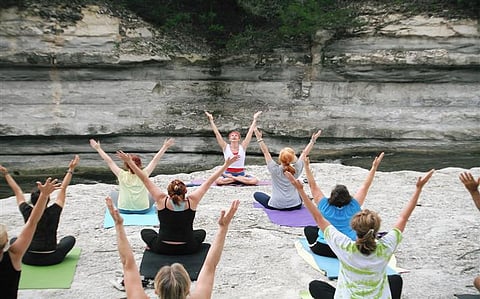
- Home
- NewsGram USA
- India
- न्यूजग्राम
- World
- Politics
- Opinion
- Entertainment
- On Ground
- Culture
- Lifestyle
- Economy
- Sports
- Sp. Coverage
- Misc.
- NewsGram Exclusive
- Jobs / Internships
- Interview

July 12, 2017: India is seen in the world as a hub of cultural importance and historical legacies. The spiritual and natural teachings of India have influenced different parts of the world and to an extent shaped their philosophies.
In the Indochina and Indonesian region, subsets of Indian culture reached out. The presence of these is still seen in China and Japan. Gradually, it spread west to the Central Asian region. India bridged the trade between East and the West, also inserting its cultural teachings and rituals in the process. It was through trade that Indian Vedic system landed in Europe, thereby greatly influencing it.
The rise of academic philosophy in the 1800s came to the East and particularly India, to form a perspective on life. Many of these philosophers also admired India and its teachings.
It was Swami Vivekanand's visit to the west, in 1893, that brought the Indian philosophical thought, centered around Yoga, to the Western spotlight.
Vivekanand's work on universal consciousness went on to later inspire Einstein's masterpiece. He introduced Yoga as a form of spiritual awakening, and it instantly touched upon the masses of the western society.
Vivekananda's Yoga was also a major player in the Indian freedom struggle. Opposed by the alien rulers, Yoga was a symbol of Indian traditions and rituals, something to stick to in a situation of foreign dominance.
Since the popularity of Yoga, many Hindu teachers and gurus have traveled abroad, spreading the ideology. These were sometimes coupled with Dharmic and Vedic teachings. Teachings of Bhagwad Gita have also had a great influence on the people.
This Indian lifestyle got more attention with the introduction of Ayurveda (a natural way of living), Mantras, Kirtans, and Indian folklores.
More than hundred million people in the world practice different forms of Yoga today. Names like Paramahansa Yogananda, Ramana Maharshi, Sri Aurobindo, Maharishi Mahesh Yogi, Satya Sai Baba, Sri Sri Ravi Shankar, Mata Amritanandamayi, Sadhguru Jaggi Vasudev, and many others are familiar with the Westerners from various countries.
The sovereign state of India had never reaped the advantages of this soft power. The governments have mostly put minimal efforts to benefit out of Yoga. It has always been the Hindu thought that has been subject to emphasis and priority.
All that has changed in the past few years. The present Government of India's Yoga initiatives has brought the country's soft power approach to a new era. International Yoga Day's success is beyond comprehension for any former political regime.
The changing face of India owes a lot to the revival of Yoga and its significance. This cultural gift to the world will provide more scope for India to climb further up the diplomatic ladder.
– by Saksham Narula of NewsGram. Twitter: @Saksham2394
